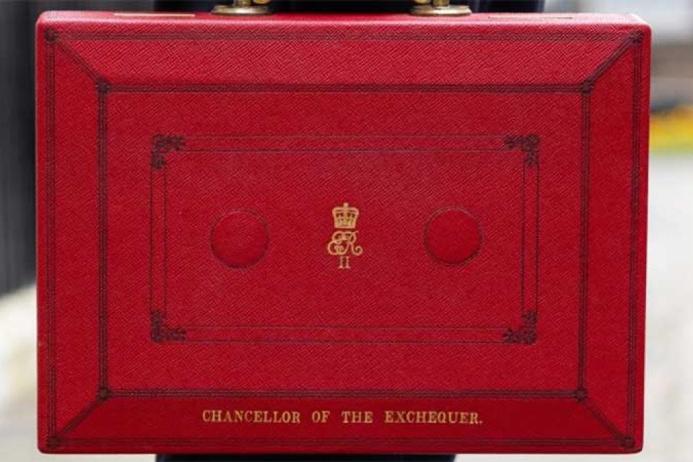Autumn Budget 2025: Industry voices give immediate reaction
MPA, CPA, WATA, AIA, and CEA respond to the Chancellor’s measures impacting minerals and construction
KEY trade associations across construction and quarrying have reacted to the Autumn Budget, welcoming targeted measures while warning that stronger, long-term commitments are still needed to support the sector.
Mark Russell, executive director at the MPA, said: ‘The Chancellor’s welcome decision to retain the Quarry Exemption and not proceed with reform to the Landfill Tax is a real relief and follows a significant campaign by the MPA. The proposed changes would have had a severe impact on the mineral products industry, with a knock-on effect for the UK economy, construction and nature conservation.
‘Beyond this sensible decision, we have concerns over the new higher rate of business rates for large quarries, cement plants and asphalt plants. The tax burden on business is holding Britain back, placing British industry and British jobs at risk.’
Construction Products Association (CPA) – Giving his reaction to the Autumn Budget, CPA economics director Prof. Noble Francis remarked: ‘With speculation in advance of the Autumn Budget at an all-time high and for longer than usual, the Budget couldn’t come quickly enough, if only to get rid of the uncertainty that had negatively affected homebuyers, home movers, the supply chain, clients and investors.
‘Much of the Budget was unsurprisingly focused on where the tax rises would be and how financial markets would react, rather than on capital investment, which was the focus of the Government’s Spending Review earlier in the year. The Budget tax rises were backend-loaded towards the end of the parliament and not matched by spending cuts, which may be of concern to financial markets.
'However, on the positive side, the government did not make the same mistake as last year, when the burden fell largely on businesses through increases in employers’ National Insurance Contributions and lower thresholds. However, it did announce an increase in the National Living Wage by 4.1% in April 2026, which means that it will have increased by 43% in the space of just five years.
‘In terms of key policies directly affecting construction and product manufacturing, the Government published its response to the Landfill Tax, stating that it will not proceed with transitioning to a single rate of Landfill Tax by 2030, though the lower rate will essentially double to £8.65 per tonne in 2026/27.
‘In addition, the Government said that the Energy Company Obligation (ECO) will end in March 2026 to reduce household energy bills in the near term, while simultaneously announcing an additional £1.5 billion in capital investment for the Warm Homes Plan. However, it did not state what the £1.5 billion would be used for, except to note that further details would be available in the Warm Homes Plan.’
Responding to the Chancellor’s Autumn Budget, David Gill, chair of the AIA, commented: ‘With the backlog of local road repairs currently at an all-time high of £16.8 billion*, and less than half the local road network currently in a good state of structural repair, it was heartening to hear the Chancellor announce that the Government intends to double local road maintenance funding by 2029-30.
‘Investing in our local roads will not only help deliver better conditions for the benefit of all road users but will also help support the Chancellor’s growth ambitions – with DfT research highlighting that every additional £1 spent on road maintenance results in a return on investment of between £2 and £9.**
‘We have long advocated for substantial, sustained, and targeted funding for highways maintenance so that local authority highway teams can plan and deliver lasting improvements, rather than having to use the funds to repeatedly fill potholes. We look forward to understanding more about how additional funds will be allocated for the most effective delivery and benefit, and hope it means the end of the pothole patch and mend cycle that has characterised our local roads for far too long.’
* ALARM survey reports 2016-2025
** DfT’s 2024 ‘Economic appraisal for investing in local highway maintenance’
Meanwhile, the Washed Aggregates Trade Association (WATA) has welcomed the Budget announcement on Landfill Tax and the Qualifying Fines Regime. WATA had contributed to the Government’s Landfill Tax Consultation earlier this year, urging ministers to rethink plans to abolish the Qualifying Fines Regime. The association warned that removing the regime would have had severe consequences for the washed aggregates sector, undermining recycling rates and increasing pressures on landfills.
Andy Hill, WATA CEO, said: ‘It is great that HMRC has listened to us. Yesterday’s announcement is exactly what WATA called for in responding to the consultation, and we are looking forward to working with the Government around the qualifying fines issue going forward.’
WATA also welcomed yesterday's Budget announcement not to merge the landfill tax rates and to continue to allow quarries with disposal permits to have exemptions.
‘Not having the ability to continue to restore quarries with materials would have been catastrophic for the industry,’ continued Mr Hill. ‘The budget decisions have given our industry some breathing space to work with the Government and to continue to push for washed recycled aggregates to play a bigger role in their policies going forward.’
Offering her assessment of the Autumn Budget, Viki Bell, chief executive of the Construction Equipment Association (CEA), said: ‘While the Budget maintains investment in some key areas, it offers little direct reassurance for the construction equipment industry. The sector was barely referenced in the Chancellor’s speech, despite its central role in supporting growth, infrastructure delivery, and UK manufacturing.
‘Rising costs remain a major concern. The increase in the National Minimum Wage, alongside the extended freeze on income tax and National Insurance thresholds until 2031, will raise employment costs and reduce disposable income at a time when many SMEs are already under pressure. Freezing fuel duty offers some relief, but the new mileage charges for hybrid and electric vehicles will add costs elsewhere in the supply chain.
‘Although funding for apprenticeships and skills is welcome, the lack of wider action on housebuilding or planning reform is a missed opportunity. With activity already subdued, the absence of targeted support for the housing market leaves a significant gap for the construction sector.
‘We are also concerned that support to cut electricity prices for manufacturing will not begin until 2027. Energy costs are impacting UK manufacturers now and delaying action risks weakening competitiveness and discouraging investment in new equipment.
‘The Chancellor confirmed the continuation of full expensing and a new first-year allowance, which will support manufacturers and some contractors. However, because assets made available for hire are excluded, most plant hire companies will remain unable to access this relief.
‘Major infrastructure schemes were referenced, but today’s strict fiscal rules mean delivery is far from guaranteed. What our sector needs is certainty. The construction equipment industry continues to face rising input costs and a slowing market, yet the Budget leaves many key questions unanswered.’










